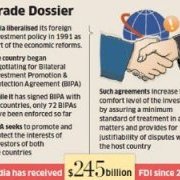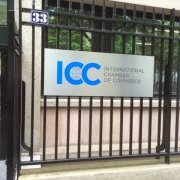26-Jul-2012
Economic Times
Malaysia headquartered Axiata Group, which holds about 20% stake in Idea Cellular has threatened claim damages and drag the Indian government to international arbitration under bilateral investment protection pacts (BIPA), making it the sixth international investor in the telecoms space to serve notice under bilateral trade agreements.
31-Mar-2012
Economic Times
The Indian government is likely to oppose any move by Vodafone Plc to invoke the India-Netherlands Bilateral Investment Promotion and Protection Agreement (BIPA) if it is forced to cough up Rs 12,000 crore in taxes on the grounds that the investment was routed through several step down firms based in different countries and that the treaty does not cover tax disputes.
29-Mar-2012
Economic Times
Norway’s Telenor will seek ’compensation for all investment, guarantees and damages’ if the Indian government fails to sort out issues related to its licence cancellation within the next six months, the company said.
28-Oct-2011
Canadian Lawyer
Why responsible companies and governments should avoid the revised ICC Rules in arbitrations involving states.











